Born in the historic August of 1945, the Vietnamese diplomatic sector is extremely honored and proud to have been directly founded and laid the foundation by President Ho Chi Minh, a genius leader and outstanding diplomat. During the 80-year journey of construction and development, under the leadership of the Party and the direct guidance of President Ho Chi Minh, the first Minister of Foreign Affairs, Vietnamese diplomacy has always maintained its revolutionary spirit, constantly promoted its glorious tradition, served the Fatherland, served the People, and contributed to the great victories in the revolutionary cause of the nation. Diplomacy has made important contributions, leaving its mark in every stage of the country's history, from the period of gaining and maintaining independence, to the resistance war against colonialism and imperialism, liberating the South, unifying the country, and to the cause of building and defending the Fatherland today.
Diplomacy in the cause of national liberation and reunification
Since its inception, the Party and Uncle Ho have attached great importance to the role of diplomacy as an important method to protect national interests. He once said: "The best way to use troops is to fight with strategy, the second is to fight with diplomacy, the third is to fight with troops" [1]. In the period of national liberation and reunification, diplomacy has made an important contribution and left its mark on the glorious victories of the nation, from contributing to winning and maintaining the independence of the Fatherland from the early days of the revolutionary government, to the successful resistance against colonialism and imperialism, liberating the South, reunifying the country and to the cause of building the Fatherland after the war.
The process of negotiating and signing the Paris Agreement on ending the war and restoring peace in Vietnam was an important contribution of the Ho Chi Minh era's diplomacy - Photo: Ms. Nguyen Thi Binh, Minister of Foreign Affairs, Head of the negotiation delegation of the Provisional Revolutionary Government of the Republic of South Vietnam, signed the Paris Agreement on January 27, 1973. Source: Document
During the period of defending the country's young independence, when the country was facing a "thousand pounds hanging by a thread" situation, "internal enemies and external enemies" (1945-1946), diplomacy played a pioneering role in maintaining the achievements of the revolution, preserving the people's government, and prolonging the time to consolidate forces for the nation's long-term resistance war. The most remarkable victory of diplomacy during this period was the Preliminary Agreement on March 6, 1946, the Provisional Agreement on September 14, 1946, as well as diplomatic efforts at the Dalat Conference and at Fontainebleau. Diplomacy dealt skillfully with five major countries at the same time, dealing with four foreign armies with over 300,000 soldiers present on Vietnamese territory. This was an excellent diplomatic move, putting the country in the most optimal position possible in the country's dire circumstances at that time.
Entering the resistance war against French colonialism (1946-1954), diplomacy both served the resistance war and actively fought to break the siege and isolation, expand relations with the outside world, and gain support and assistance from international friends. Diplomacy contributed to forming a fighting alliance with Laos and Cambodia, urging China, the Soviet Union and many socialist countries to recognize and establish official diplomatic relations with Vietnam, contributing to forming a great second rear for the resistance war. In coordination with the military front, Vietnamese diplomacy promoted great victories on the battlefield, especially the historic victory of Dien Bien Phu, to step up the struggle at the conference table, forcing the world powers to sign the Geneva Agreement on ending the war and restoring peace in Indochina. The signing of the Geneva Agreement completely ended the nearly 100-year colonial rule in Vietnam, affirming Vietnam's basic national rights of independence, sovereignty, unity and territorial integrity, which was a very important political and legal basis for the struggle on the political and diplomatic front in the cause of liberating the South and reunifying the country later.
In the struggle to liberate the South and unify the country (1954-1975), in the face of the need to "fight the strong with the weak", diplomacy became "an important front of strategic significance" [2]. Diplomacy took advantage of the strength of the three revolutionary streams, built solidarity and fighting alliances with Laos and Cambodia, contributing to the victory of each country's revolution; sought help and support from fraternal socialist countries, especially the Soviet Union and China, and formed a broad international front to support the just struggle of the Vietnamese people. President Fidel Castro's saying "For Vietnam, the Cuban people are willing to sacrifice their blood" became a typical slogan for the support of progressive humanity for Vietnam. In particular, diplomacy was combined with military and politics, creating a "fighting and negotiating" situation, culminating in the Paris Peace Agreement. The victories at the negotiating table forced the US to de-escalate and sign the Paris Agreement in 1973, forcing the withdrawal of all troops and weapons from South Vietnam, creating favorable conditions for the revolutionary forces to consolidate, thereby changing the battlefield in a direction favorable to the revolution, creating an opportunity to completely liberate the South and unify the country.
During the period of reconstruction, national construction and economic development after the war (1975 - 1986), diplomacy was the core force, pioneering in the struggle to bring our country out of political isolation and economic embargo. After the victory on April 30, 1975, diplomacy continued to clarify the righteousness of Vietnam's noble international mission to help the Cambodian people escape the Pol Pot genocidal regime; gradually breaking the siege and embargo, contributing to bringing the country out of socio-economic difficulties. We persistently restored friendly neighborly relations with China and ASEAN countries, fought against the US government's embargo, developed relations with nationalist and non-aligned countries, and gradually expanded relations with developed capitalist countries and international organizations. This was also the period when Vietnam became a member of major international multilateral organizations and forums such as the Non-Aligned Movement (1976) and the United Nations (1977).
Deputy Prime Minister and Minister of Foreign Affairs Bui Thanh Son. Photo: Minh Nhat
Diplomacy in the process of innovation and international integration
During the Renovation period (1986 - present), diplomacy has promoted its pioneering role, taking the lead in building peace and protecting the Fatherland "early and from afar", opening up a favorable foreign situation for building and protecting the Fatherland. The current foreign policy of independence, self-reliance, peace, cooperation and development, multilateralization, diversification, proactive and active international integration, for the benefit of the nation and people is the crystallization of the country's renovation and opening-up process in the face of domestic and international changes and has achieved "important results and achievements of historical significance".
Entering the early years of Doi Moi, in the context of the country facing both domestic socio-economic difficulties and fierce opposition from hostile forces, diplomacy proactively deployed many measures, including promoting a political solution to the Cambodian issue and actively and effectively resolving the “boat people” issue, thereby reducing the fierce opposition from hostile forces, restoring dialogue and improving relations with major countries and countries in the region, creating new favorable conditions for the next stage of diversification and multilateralization of international relations. Since the 1990s, implementing the policy of “diversification and multilateralization”, we have expanded, upgraded and raised the level of international relations with partners, especially neighboring countries, major countries and important partners. From a besieged and isolated country, Vietnam now has diplomatic relations with 194 countries, established a network of 37 countries with comprehensive partnerships or more, including all permanent members of the United Nations Security Council, all ASEAN countries, all G7 members, 18/20 G20 economies, and is an active member of more than 70 international organizations. The elevation and upgrading of relations with key and important partners has contributed to creating a new strategic stature, deepening cooperation with partners, creating a foundation for the development of long-term and sustainable relations, opening up a more favorable foreign situation than ever for the cause of national construction and defense.
On behalf of the Party and State, General Secretary To Lam presented the First Class Labor Medal to the Ministry of Foreign Affairs on the occasion of the 80th anniversary of the sector's establishment. Photo: Pham Hai
Along with national defense and security, diplomacy has contributed to maintaining a peaceful and stable environment, protecting the Fatherland early and from afar. Border issues with related countries have been gradually resolved, creating a legal basis and favorable conditions for building a peaceful, friendly and cooperative border, promoting socio-economic development, and contributing to consolidating peace and stability in the region. At the same time, effectively combating activities that violate Vietnam's sovereignty, rights and legitimate interests at sea; promoting negotiations and cooperation to resolve existing issues, fully implementing the Declaration on the Conduct of Parties in the East Sea (DOC), actively participating in building a substantive and effective Code of Conduct in the East Sea (COC) in accordance with international law, especially the 1982 United Nations Convention on the Law of the Sea (UNCLOS). Diplomacy has also actively participated in the struggle in the fields of democracy, human rights, religion, and ethnicity, contributing to maintaining national security, order, and social safety.
Multilateral diplomacy enhances Vietnam's role and position, affirming Vietnam as an active and responsible member of the international community. Vietnam joined ASEAN, APEC, WTO and gradually transformed in quality, from joining and participating to proactively and actively making substantial contributions, being a responsible member at multilateral and international forums. We have initiated and shaped many new cooperation mechanisms such as ASEM, ADMM+... Implementing Directive 25 of the Secretariat, Vietnam has shifted from the policy of participation to proactively promoting the role of "responsible member"; fulfilled many major international responsibilities, participated in building the rules of the game at important regional and global forums such as the United Nations Security Council, the United Nations Human Rights Council, the United Nations Economic and Social Council, the United Nations Educational, Scientific and Cultural Organization, the Mekong sub-regional mechanisms, the Non-Aligned Movement, the Francophone Organization...; Expanding contributions to UN peacekeeping efforts and international search and rescue. We have twice served as a non-permanent member of the UN Security Council (terms 2008-2009 and 2020-2021), twice as a member of the UN Human Rights Council (terms 2014-2016 and 2023-2025), and participated in 6/7 key operating mechanisms of UNESCO...
Economic diplomacy for development has played an important role as a driving force in socio-economic development, realizing development goals and improving people's lives. From a backward country, heavily devastated by war, Vietnam has now become a rapidly growing economy, ranked among the top 32 economies in terms of GDP. Our international integration has shifted from simple economic integration to comprehensive and extensive integration. To date, we have had economic relations with more than 230 countries and territories; signed and implemented 17 Free Trade Agreements (FTAs), including many new generation FTAs. Implementing Directive 15 of the Secretariat on economic diplomacy, foreign affairs and diplomacy has mobilized many important resources such as FDI, ODA, bringing Vietnam into the group of 20 countries with the largest trade scale and attracting the leading foreign investment in the world; become an important link in many economic linkages through more than 500 bilateral and multilateral agreements; mobilize major partners in new areas such as green transformation, digital transformation, innovation, participation in supply chains and improving Vietnam's position in the global value chain.
Foreign affairs continued to be implemented effectively and comprehensively. Overseas Vietnamese affairs effectively implemented the Party and State's care policy for nearly 6 million overseas Vietnamese, consolidating national unity, mobilizing resources for development with thousands of investment projects and billions of dollars in annual remittances. Citizen protection actively protected the security, safety, legitimate and legal rights and interests of Vietnamese citizens and businesses, especially in war zones, natural disasters, and instability. Foreign information strongly promoted the image of the country, people, culture, and innovation achievements with creative content and methods. Cultural diplomacy successfully lobbied UNESCO to recognize 72 heritages and titles, thereby preserving national cultural values and mobilizing new resources for economic, cultural, and social development in localities.
Leaders of UNESCO in Vietnam, the Ministry of Foreign Affairs and Lang Son province performed the ceremony to receive the certificate of recognition of the title of UNESCO Lang Son Global Geopark last June. Photo: D.X
Looking back over the past 80 years, those great achievements are due to the correct, wise and talented leadership of our Party, headed by President Ho Chi Minh and the Party's leaders. Along with that are the great contributions of outstanding diplomats such as Pham Van Dong, Le Duc Tho, Nguyen Duy Trinh, Xuan Thuy, Nguyen Thi Binh, Nguyen Co Thach..., who have become symbols of courage and intelligence of Vietnamese diplomacy. Diplomacy has truly become the task of the entire political system, the pillars of foreign affairs have promoted their overall and synchronous strength as well as their specific advantages: state diplomacy is smoothly combined with party diplomacy and people's diplomacy, parliamentary diplomacy closely complements state diplomacy, defense diplomacy and public security diplomacy are actively deployed; local diplomacy complements central-level diplomacy...
In addition, there are still some limitations in the implementation of foreign affairs such as ineffective exploitation of favorable factors from the international situation; established relationship frameworks have not been fully exploited, especially in the fields of economics - trade, defense - security, science - technology; the implementation of international agreements still has many shortcomings; research and consulting work is sometimes not sensitive and timely. The causes of these limitations are objective factors due to the rapid and unpredictable developments of the situation, the emergence of many new and unprecedented problems, making response difficult, but mainly due to subjective causes stemming from our limited capacity.
Those achievements and limitations leave many lessons for the implementation of foreign affairs and diplomacy in the coming time. That is the lesson of ensuring the highest national interests; throughout the past 80 years, diplomacy has absorbed President Ho Chi Minh's words at the 3rd Diplomatic Conference in 1964 that diplomacy "must always serve the interests of the nation". That is the lesson of the Party's unified and absolute leadership, the acumen in assessing and grasping the situation, and the decisiveness in making specific policies and measures. That is the lesson of combining internal strength with external strength, combining national strength with the strength of the times; mobilizing the enormous support both materially and spiritually of progressive humanity to support Vietnam. That is the lesson of "responding to all changes with the unchanging", steadfast in principles and flexible in strategies depending on each issue, each time...
Promoting the role of "pioneering, important, and regular" in the new era
In the coming years, the world situation is forecast to continue its unpredictable and complicated development trend. The world situation will continue to move in a multipolar, multi-center, multi-level direction with many profound movements in politics, security, economics, science, military, science - technology. Local conflicts, border disputes, territories, natural resources are likely to continue with a more multidimensional nature, taking place in new spaces and with diverse forms. The world economy is forecast to grow unstably due to geopolitical tensions in many regions. Strategic competition between major countries continues to be fierce and comprehensive, leading to clear demarcation and separation in many fields, affecting the security and development interests of countries.
Domestically, the coming period is of pivotal and decisive significance in successfully implementing the development goals until 2030, with a vision to 2045, bringing the country into a new era. The epochal changes bring new opportunities and advantages, but also many challenges. The epochal changes require revolutionary decisions. As General Secretary To Lam said, "in the new era, the era of national development, Vietnamese diplomacy must reach new heights to fulfill new glorious responsibilities, worthy of being the vanguard, the combined arms of the Vietnamese revolution". The draft documents of the 14th National Congress also affirm that "strengthening national defense and security, promoting foreign affairs and international integration are essential and regular".
Imbued with that ideology, Vietnamese diplomacy will promote the timeless lessons left by the 80-year revolutionary history, constantly renew its thinking to suit the context of the situation, actively and proactively contribute to the successful implementation of the country's strategic goals. In particular, the important directions are:
Firstly, promoting the pioneering, "important, regular" role in creating and consolidating a favorable foreign situation, realizing the three strategic goals of foreign affairs: security, development and the country's position. The overarching goal is to maintain a peaceful, stable and favorable environment for the cause of building and defending the Fatherland; resolutely and persistently defending our independence, sovereignty, sovereign rights, territorial integrity and legitimate interests in accordance with international law; contributing to the implementation of strategic tasks on socio-economic development; enhancing the country's role and position in the international arena. That requires diplomacy to further enhance the effectiveness of foreign affairs activities, especially political, security, defense, economic and cultural cooperation with other countries; continuing to deepen relations with partners with whom we have established a framework, first of all neighboring countries and major countries, in a stable and effective manner; Prioritize maintaining stability and momentum in relations, enhancing political trust, promoting cooperation in all fields, and handling differences and issues arising in a spirit of cooperation, controlling disagreements, and based on international law.
Second, foreign affairs play a role in creating and motivating, opening up new opportunities for the country, connecting internal resources with external resources, in which internal resources are fundamental and long-term, external resources are important and breakthrough. These are trade and investment resources, economic development and linkage trends, a multipolar, multi-center world order based on international law, the strength of the era of scientific and technological revolution, knowledge economy... From the lessons of previous countries, in the breakthrough period, the task of foreign affairs is how to position the country in an optimal position in the main development trends and movements of the world; to open up and connect cooperation with leading partners in breakthrough and strategic fields such as artificial intelligence, semiconductors... As Prime Minister Pham Minh Chinh said, economic diplomacy and technological diplomacy "must be a key task in the new development period, becoming a driving force for the country's rapid and sustainable development"; effectively implement the policy of proactive and active international integration, especially Resolution 59 of the Politburo on international integration in the new situation.
Third, enhance Vietnam's contribution to peace, cooperation, development and progress of humanity. The country's new position and strength allow us to participate more deeply and responsibly in solving common world issues. As President Luong Cuong stated, "the future and destiny of the country are closely linked to peace, stability, cooperation and development of the region and the world". With a new foreign policy approach from receiving to contributing, from learning to leading, Vietnam will actively participate in building and protecting a fair and equal international order based on international law; enhance Vietnam's contribution to common issues, not only participating in building and shaping multilateral institutions, but also promoting its core and leading role in important issues and mechanisms, suitable to our interests and conditions. Accordingly, Vietnam will further promote its contributions in multilateral forums, especially promoting new initiatives; demonstrating a core role in building the ASEAN Community and consolidating ASEAN's central role in regional security structures; actively participating within the framework of the United Nations, especially in implementing sustainable development goals and participating in peacekeeping forces...
A combination of Vietnamese and Korean cultural arts at the opening ceremony of the Vietnamese Consulate General in Busan last August. Photo: Minh Nhat
Fourth, promote the nation's "soft power", increase Vietnam's image and position in the international arena. In the new era, the country's soft power is not only an important resource serving the country's socio-economic development goals but also helps connect Vietnam with the world, fostering friendship between countries. In which, cultural diplomacy, foreign information and overseas Vietnamese affairs are effective channels to build trust and mutual understanding, create long-term, close and trustworthy relationships, and widely gain support from countries, international friends and overseas Vietnamese for Vietnam's innovation cause.
Fifth, improve the quality of research, forecasting, and strategic advice in foreign policy planning, contributing to deepening the Party's theoretical foundation on foreign affairs. In today's volatile world, strategic research and forecasting play a very important role in maintaining initiative. Diplomacy needs to be sensitive, identifying political, economic, cultural and social trends in the region and the world, especially before the stormy impact of the Fourth Industrial Revolution to take advantage of international trends, correctly assess the movement in policies and relations between countries, especially neighboring countries and major countries, to advise on appropriate foreign policy decisions and steps.
Sixth, build a comprehensive, modern, professional Vietnamese foreign affairs and diplomacy that meets the requirements of the new era. Party foreign affairs, state diplomacy, parliamentary diplomacy, people's foreign affairs and foreign affairs of sectors, fields, localities and enterprises need to go into depth and be sustainable. In addition, there needs to be appropriate resource allocation to ensure that the material conditions, infrastructure and regime are on par with the common level of the region, gradually approaching international standards. In particular, as President Ho Chi Minh said, "cadres are the root of all work", cadre work must meet the requirements of the new era; accordingly, the generation of cadres in the new period must not only have qualifications, capacity and political courage but also dare to think, dare to do, dare to innovate, become increasingly professional, on par with the region and the world. At the same time, continue to perfect the theoretical foundation of foreign affairs, build the Ho Chi Minh era diplomatic school on the basis of the historical tradition of Vietnamese diplomacy and Ho Chi Minh's diplomatic thought.
***
After 80 years of national founding and 40 years of renovation, under the wise leadership of the Party, our country has achieved historic achievements, making Vietnam famous on the world map. In each great victory of our nation, there is an important contribution of diplomacy. Entering the new era of the nation, the Vietnamese diplomatic sector vows to make every effort to continue writing the glorious history of diplomacy in the Ho Chi Minh era, wholeheartedly serving the Fatherland and the people, promoting the pioneering spirit, proactively and actively creating momentum and creating a position to contribute to bringing the country steadily to new levels of development.
[1] Ho Chi Minh: Complete Works, National Political Publishing House Truth, Hanoi, 2011, volume 3, page 562.
[2] Resolution of the Politburo April 1969.
Member of the Party Central Committee, Deputy Prime Minister, Minister of Foreign Affairs Bui Thanh Son
Source: https://vietnamnet.vn/80-nam-ve-vang-cua-nen-ngoai-giao-viet-nam-2436938.html



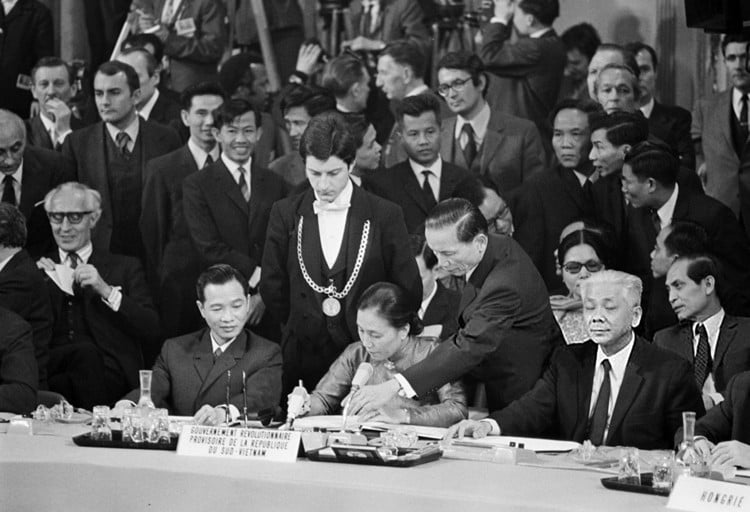
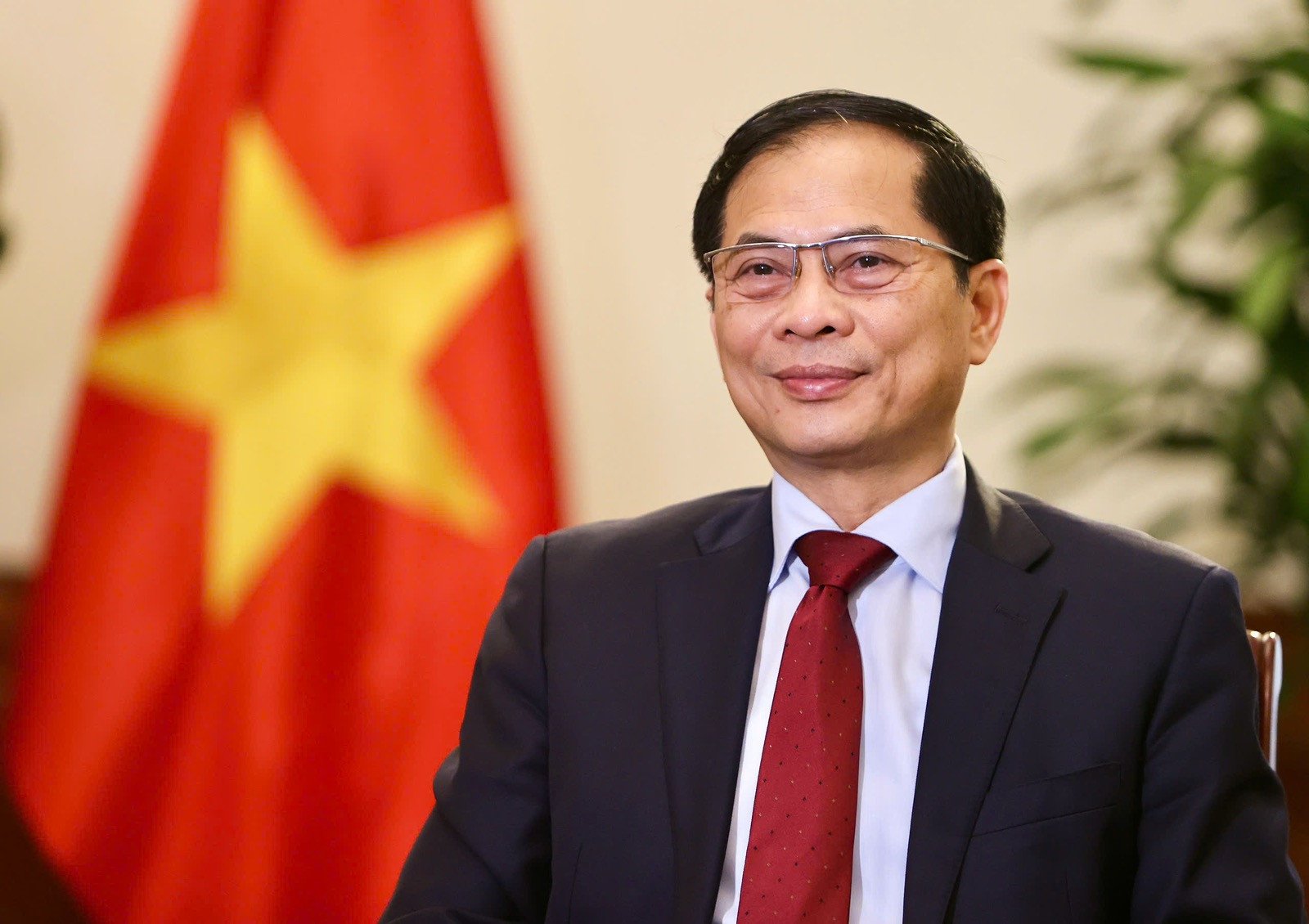
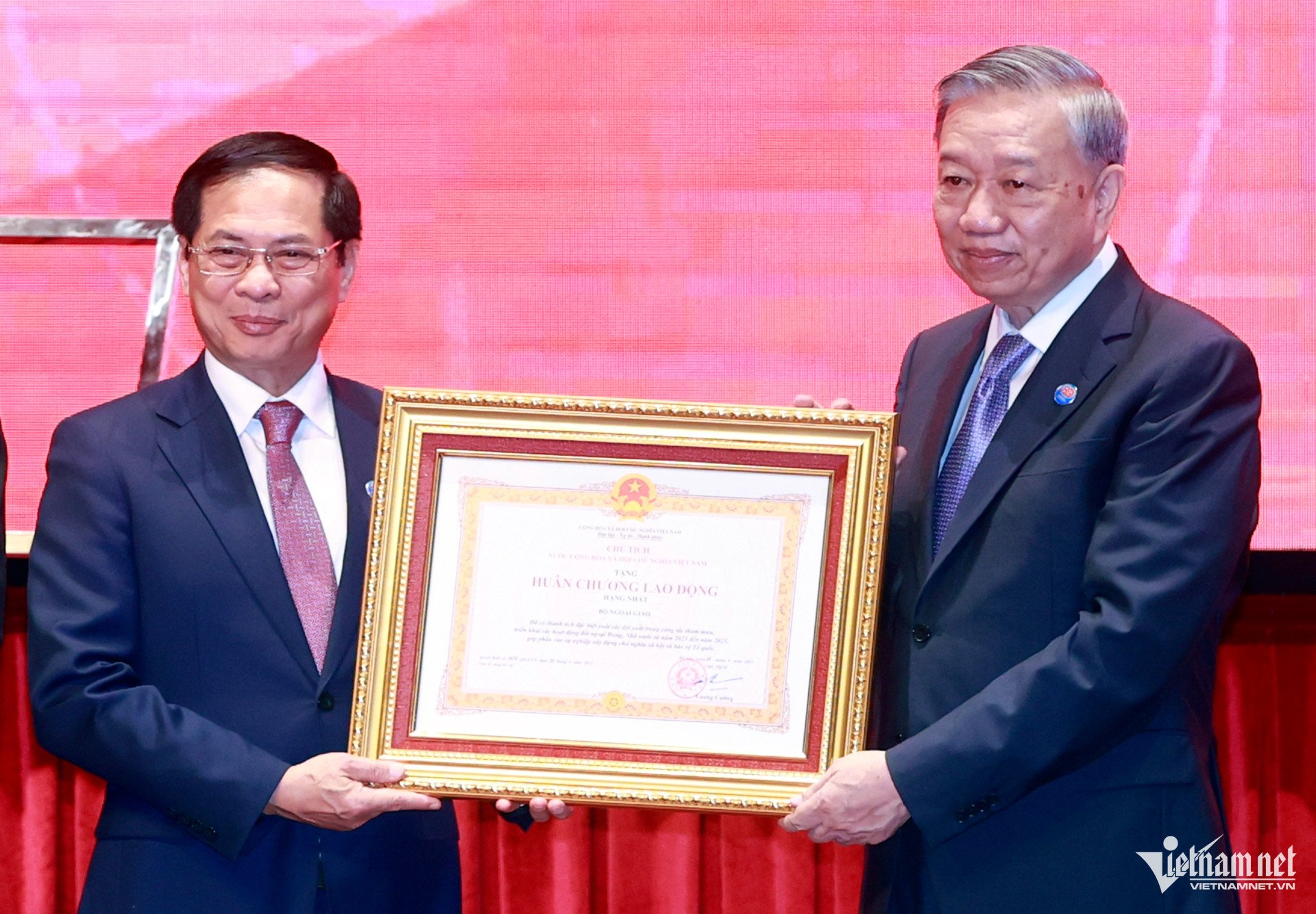
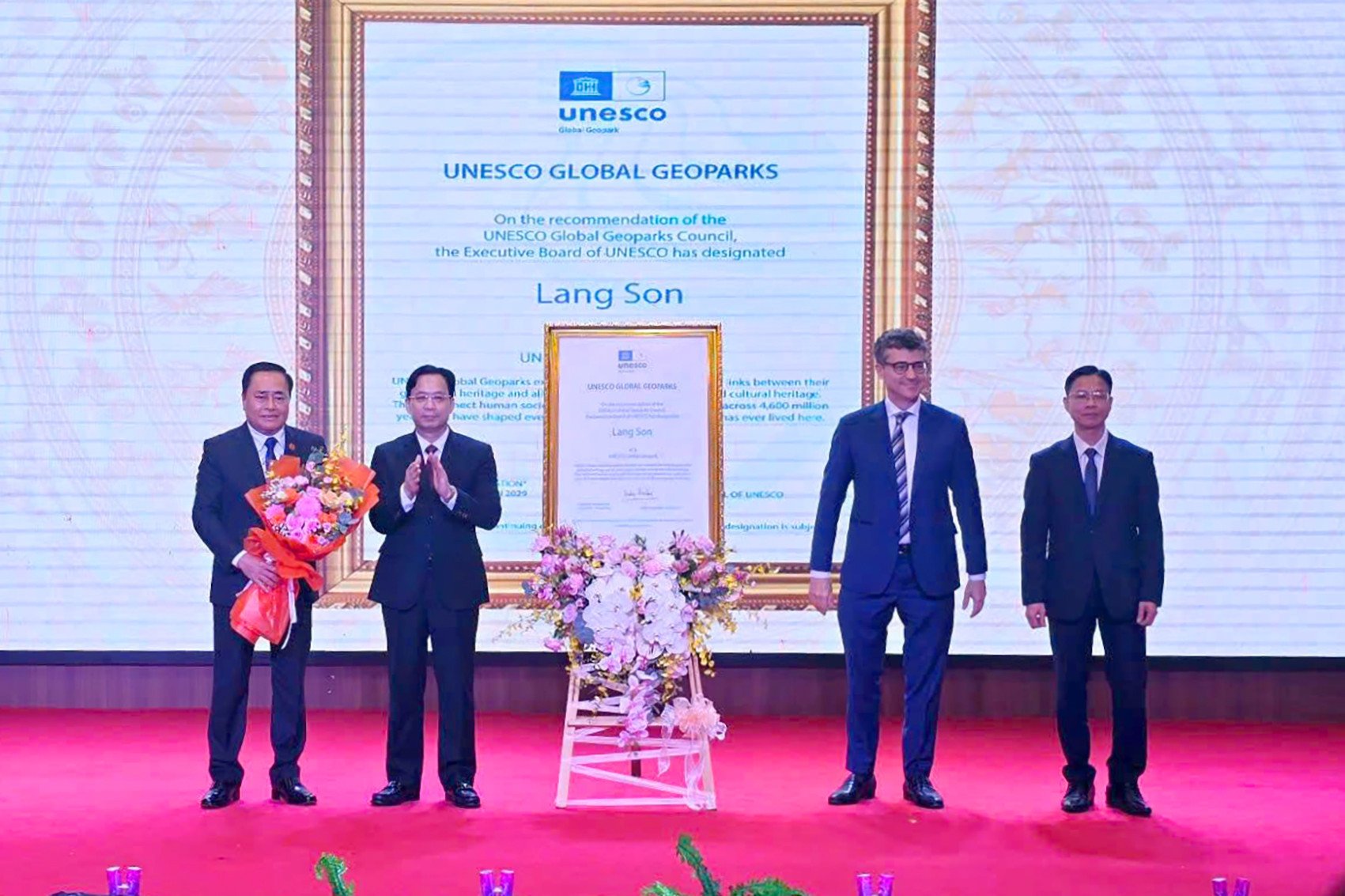
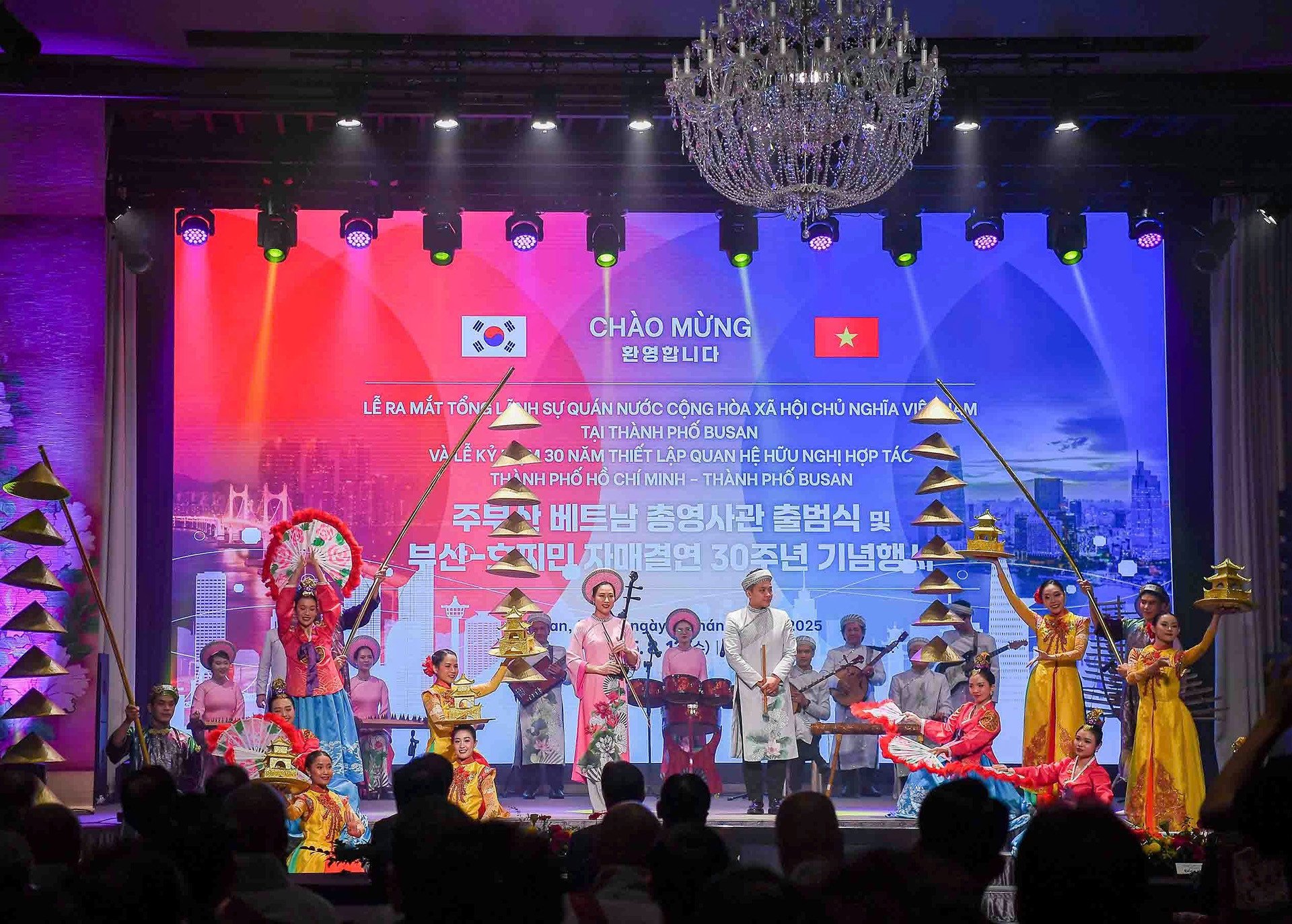
![[Photo] General Secretary To Lam presents the 45-year Party membership badge to comrade Phan Dinh Trac](https://vphoto.vietnam.vn/thumb/1200x675/vietnam/resource/IMAGE/2025/8/28/e2f08c400e504e38ac694bc6142ac331)
![[Photo] Politburo works with the Standing Committee of Cao Bang Provincial Party Committee and Hue City Party Committee](https://vphoto.vietnam.vn/thumb/1200x675/vietnam/resource/IMAGE/2025/8/28/fee8a847b1ff45188749eb0299c512b2)
![[Photo] Red flag with yellow star flutters in France on National Day September 2](https://vphoto.vietnam.vn/thumb/1200x675/vietnam/resource/IMAGE/2025/8/28/f6fc12215220488bb859230b86b9cc12)
![[Photo] National Assembly Chairman Tran Thanh Man holds talks with New Zealand Parliament Chairman](https://vphoto.vietnam.vn/thumb/1200x675/vietnam/resource/IMAGE/2025/8/28/c90fcbe09a1d4a028b7623ae366b741d)

![[Photo] General Secretary To Lam attends the opening ceremony of the National Achievements Exhibition](https://vphoto.vietnam.vn/thumb/1200x675/vietnam/resource/IMAGE/2025/8/28/d371751d37634474bb3d91c6f701be7f)
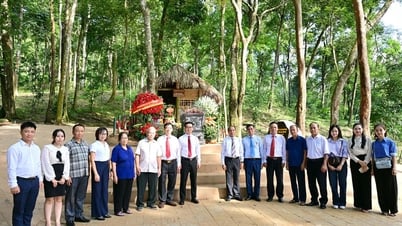

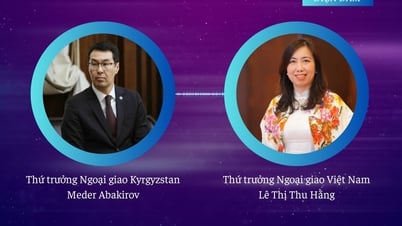

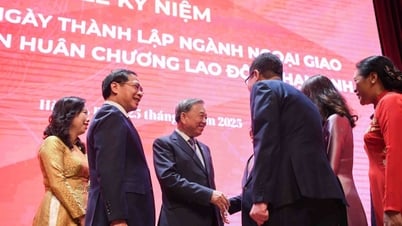
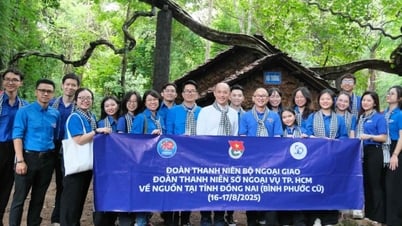
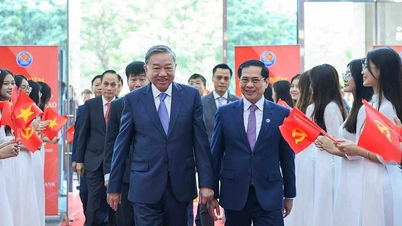

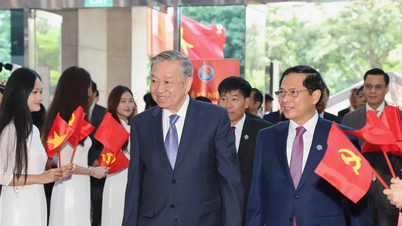

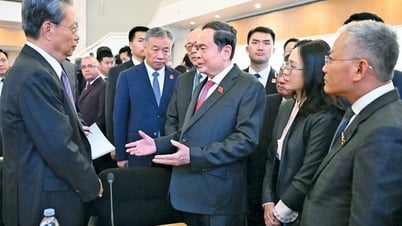

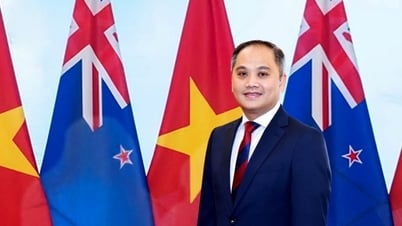
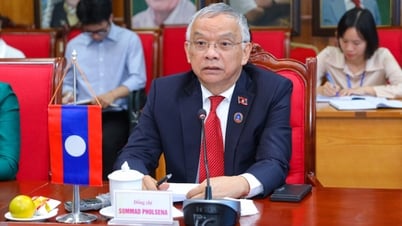

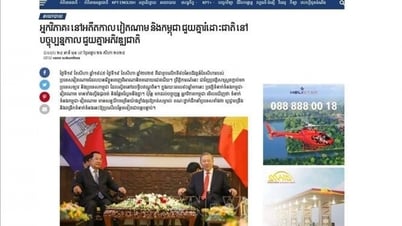
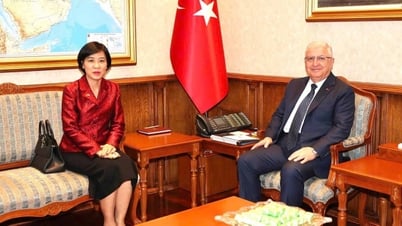
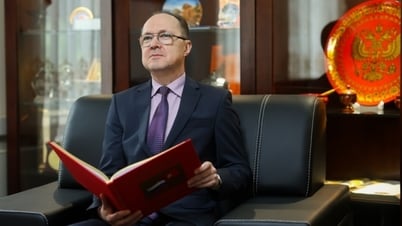





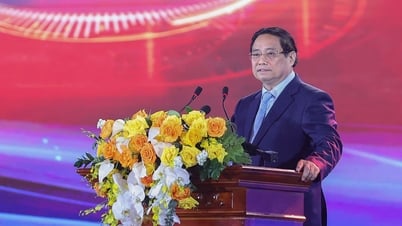


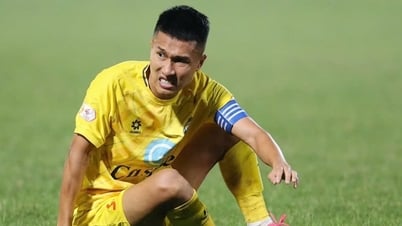
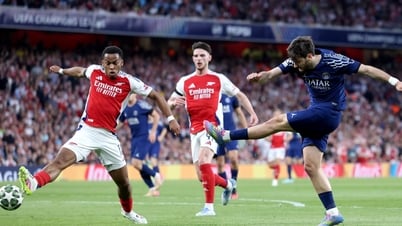
























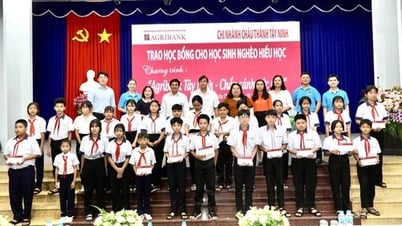


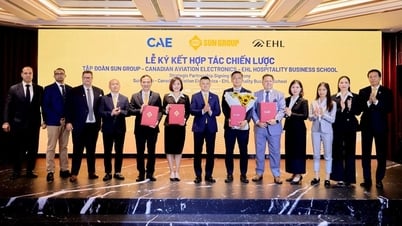








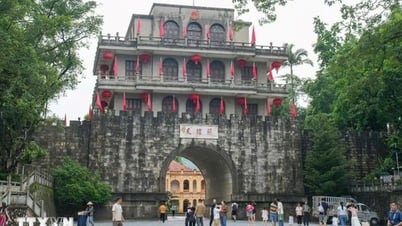



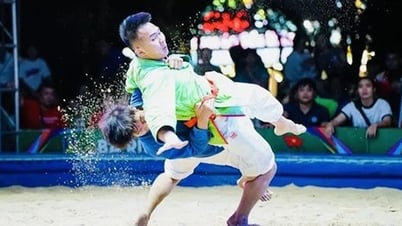
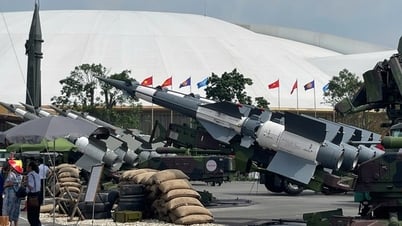
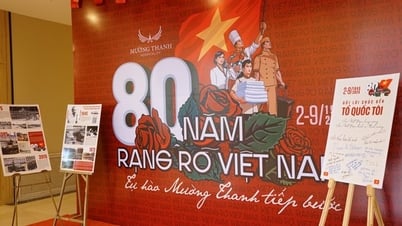


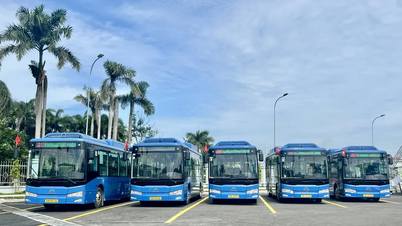
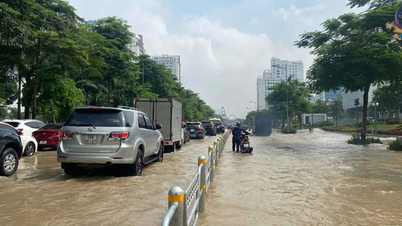
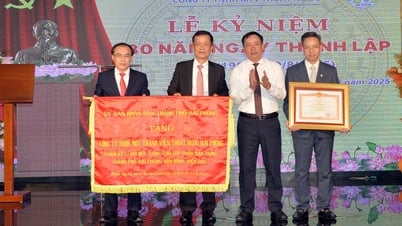

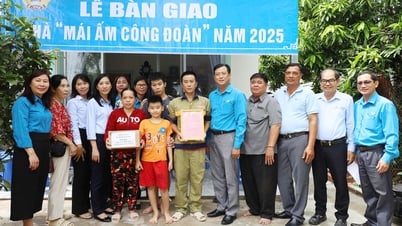
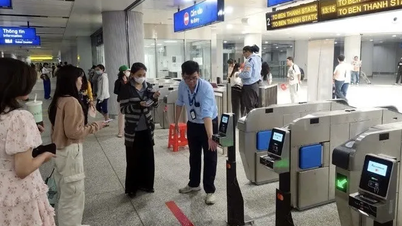












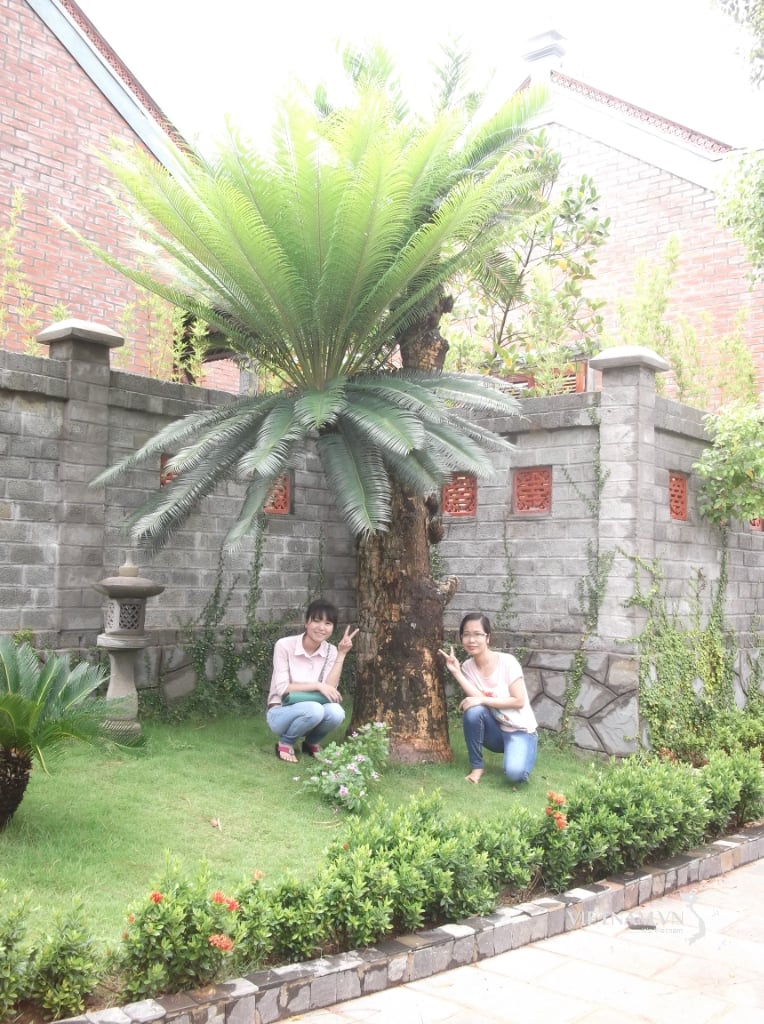



Comment (0)